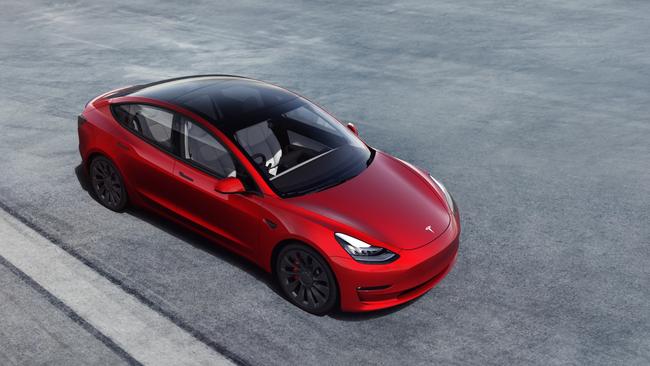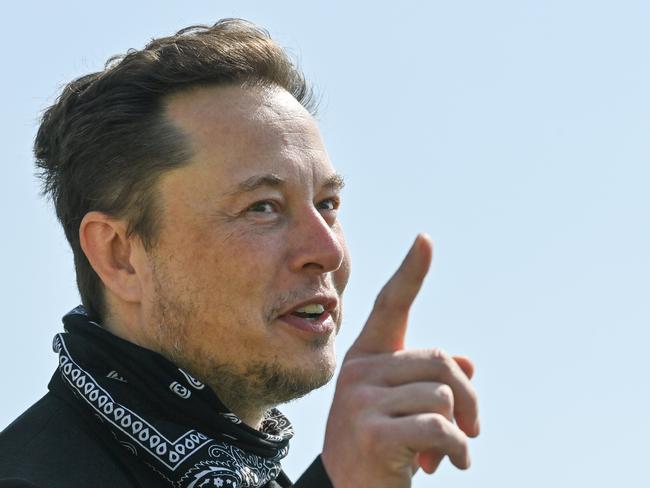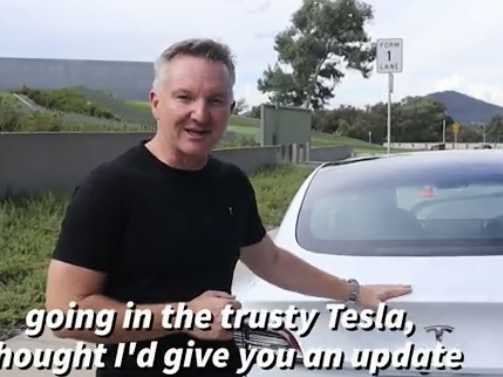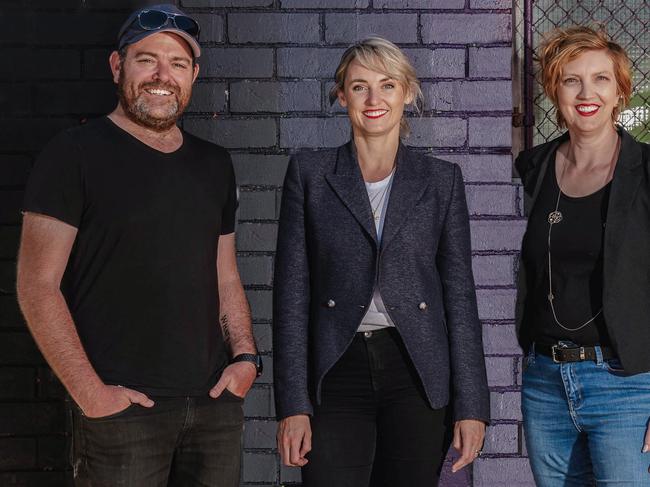Elon Musk factor ‘no deterrent’ for Australian Tesla buyers
Tesla’s Model 3 is now Australia’s highest-selling sedan, ending a decades-long run by the Toyota Camry as a bigger trend takes shape, new figures show.

The Tesla Model 3 is Australia’s highest-selling sedan, ending a decades-long run by the Toyota Camry, new figures show.
Sales data for the 12 months to December 31 show sales of electric vehicles doubled to 33,410 in the year, with the Elon Musk-controlled car maker overtaking Toyota to become the country’s most popular sedan. Tesla sold 10,877 Model 3s and 19,584 vehicles in total during the year.
By comparison, Toyota sold 9538 Camry vehicles, down from 13,081 one year earlier. It remains overwhelmingly the most popular non-EV medium car. The Camry had been the best-selling mid-size vehicle for 28 years.
The Toyota Corolla remains the most popular small car, with 25,284 sold compared to 28,768 in the prior 12 months, data compiled by the Federal Chamber of Automotive Industries shows.
Tesla faces production delays in China, where its factories have been disrupted by Covid-19 lockdowns and a more recent surge in infections as it reopens.

The company intends to run a reduced production schedule at its Shanghai plant in January. It intends to stop EV output from January 20 to January 31 for an extended Chinese New Year break, Reuters reported. Despite the supply chain disruption, the car manufacturer had its best year of sales in Australia to date, accounting for nearly two-thirds of all battery electric vehicles.
The number also highlighted the degree to which state and federal rebates and tax benefits, as well as skyrocketing fuel costs, helped encourage EV buyers.
But Tesla shares, listed on the Nasdaq, have been hit by disappointing delivery numbers, with the company reporting it had delivered 405,000 cars worldwide in the last three months of 2022. While that was 40 per cent up on the previous corresponding period, it was below market expectations for 50 per cent growth.
Tesla shares have fallen 66.6 per cent in 12 months, and trade at around $US123 ($178).
Despite those difficulties, the company accounted for 57 per cent of Australia’s new EV market, growing its sales by 62 per cent over the year. Tesla sold 8717 of its Model Y, which was comfortably Australia’s top-selling mid-priced SUV in 2022.

BYD and Polestar, relatively new brands, were the second and third most popular EV manufacturers. MG sold 1119 of its ZS EV vehicles while Hyundai shipped 1096 of its Kona models.
Matt Allen, the co-CEO of Melbourne-based fintech firm Tractor Ventures, has owned three Teslas since 2015, describing himself as an early adopter.
“Elon is both the most inspiring and frustrating man in the world,” Mr Allen said. “On the last shareholder call he went from interplanetary space missions to the next full self-driving version number being 69.420 in the same breath.”
Mr Allen said he did not think it was appropriate to boycott the company, as some critics of Mr Musk have urged, irrespective of the behaviour of its CEO.

“I think cancelling a company that has tens of thousands of employees building amazing vehicles because of one guy is disrespectful to the rest of the organisation,” he said.
“If everyone stopped buying products due to a company leader’s poor behaviour then nobody would buy anything.”
Investors have been concerned that Mr Musk has prioritised his work at Twitter over the EV manufacturer, and that his lack of focus has led to a valuation drop across both companies.
Mr Musk – who the chief executive of Tesla, SpaceX and Twitter – has defended his ability to handle multiple executive roles, and says he has not missed a major Tesla shareholder meeting since taking on the top job at Twitter. Tesla is chaired by Australian businesswoman Robyn Denholm, previously Telstra’s chief financial officer and currently an operating partner at venture capital firm Blackbird.
Mr Musk has said he’ll quit as Twitter chief executive when he finds a “foolish enough” replacement, after holding a poll that found he should step down.
Amid the tumult, Mr Musk is also facing a Tesla shareholder lawsuit in San Francisco stemming from posts on Twitter he made in August 2018 in which he said he had sufficient financing to take Tesla private at $US420 a share, which investors have since argued has led to constant volatility in the share price.





To join the conversation, please log in. Don't have an account? Register
Join the conversation, you are commenting as Logout